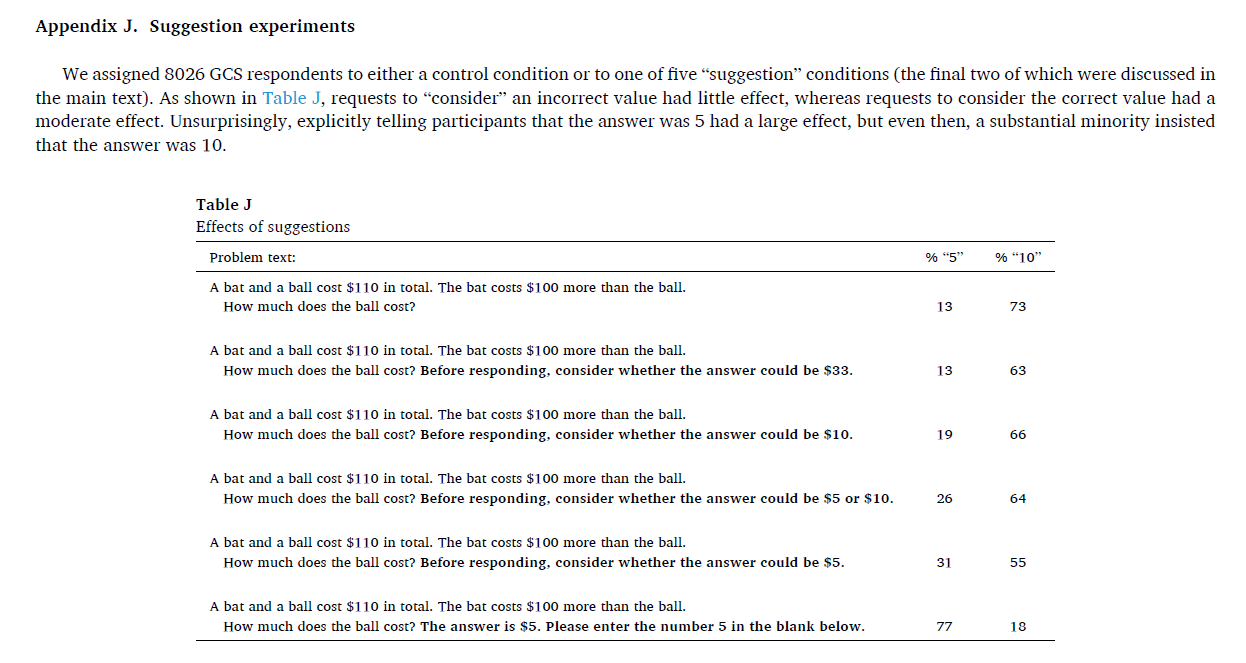All of Andrew Meyer's Comments + Replies
50
If you look in the appendix, you'll see we ran something similar to that, where we told them to "consider 10". It increased solution rates from 13% to 19%.

40
I partially agree. But I'll push back a little. The 23% wrong answers are not random key mashing. 80% of them type the number "10". Instead of copying the single digit that they are instructed to copy, they are looking further from the answer blank, finding two three-digit numbers, subtracting one from the other, and typing the two-digit difference. That is more work than the correct answer, not less.
But still, I do agree that if people had accuracy incentives, the correct answer rate would probably go up.... Then again, maybe, with monetary incentives, pe...
Monetary incentives raise solution rates a little, but not that much. Lex Borghans and co-authors manipulate small incentives and they do almost nothing. Ben Enke and co-authors offers a full month's salary to Nairobi based undergrads and finds a 13% percentage point increase in solution rates.
I'm not sure how our manipulations would interact with monetary incentives. But I'd like to know!